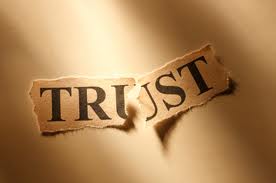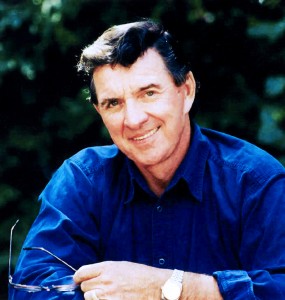AURORA COLORADO: HOW WILL SOCIETY REACT TO THIS TRAGEDY?

Trust or fear?...the implications of choice
The recent shootings in Aurora Colorado caused many to reflect on the issues of trust and fear. Trust usually commands very little of our attention—even though it often involves matters of life and death. For example; we put faith in the weight bearing capacity of a ladder, we assume that fellow drivers will stay in their lane. We trust that pharmaceutical companies have adequately tested our prescription for side effects and we trust that laws and law enforcers will protect us. Without second thought, we place our lives in the hands of unknown chemists, engineers, trades people, first responders, and random passers-by.

by LSI Publisher Art McNeil
Beginning life as the planet’s most helpless critter, humans are dependent on parents and other adults for an inordinate period of time—from birth it’s in our nature to trust. A leading psychologist Jack Gibb suggested that “trust creates flow and gentles the mind-body-spirit.” The opposite happens when fear replaces trust as the dominant perspective. Harmony between self, others and the environment is destroyed when fear is left unchecked. It can cause rational people and communities to regress into a primitive state of kill or be killed. Civilized societies have no choice but to work at fostering trust because fear-based conditioning begets more fear and leads to an increase in violence. We get more of what we think about because the subconscious mind unwittingly moves us in that direction.
Is the world dangerous? Can people be trusted? Should we try to maintain a degree of trust and encourage our children to do likewise? Or should we develop a sense of caution, be appropriately wary, and be prepared for danger?” In our world, danger has always and will forever exist. People get mugged, too many women and children are subjected to violence in the home, there are companies who cheat, and our system appears to attract politicians who become less than-honest. How should parents prepare the next generation? Do they teach children to bear arms? Should our children be taught the rudiments of civics and be encouraged to participate in the political process? Must we advise children to expect evil from strangers, in spite of statistics that suggest abuse comes primarily from family members and friends?
You nor society can prevent violence but you can select the premise upon which choices will be made. By choosing not to trust, individuals and communities will become defensive rather than collaborative—tending to exclude rather than include. Teaching children to expect safety and protection from the community and providing law officers with the legislation and tools necessary to get a tough job done is a great place to start. Children should be advised that safety is impacted by personal choice. Trust and fear are contagious—for individuals and communities. Personal choice is shaping your life and the world our children will inherit.
This post is sponsored by the published works of Art McNeil